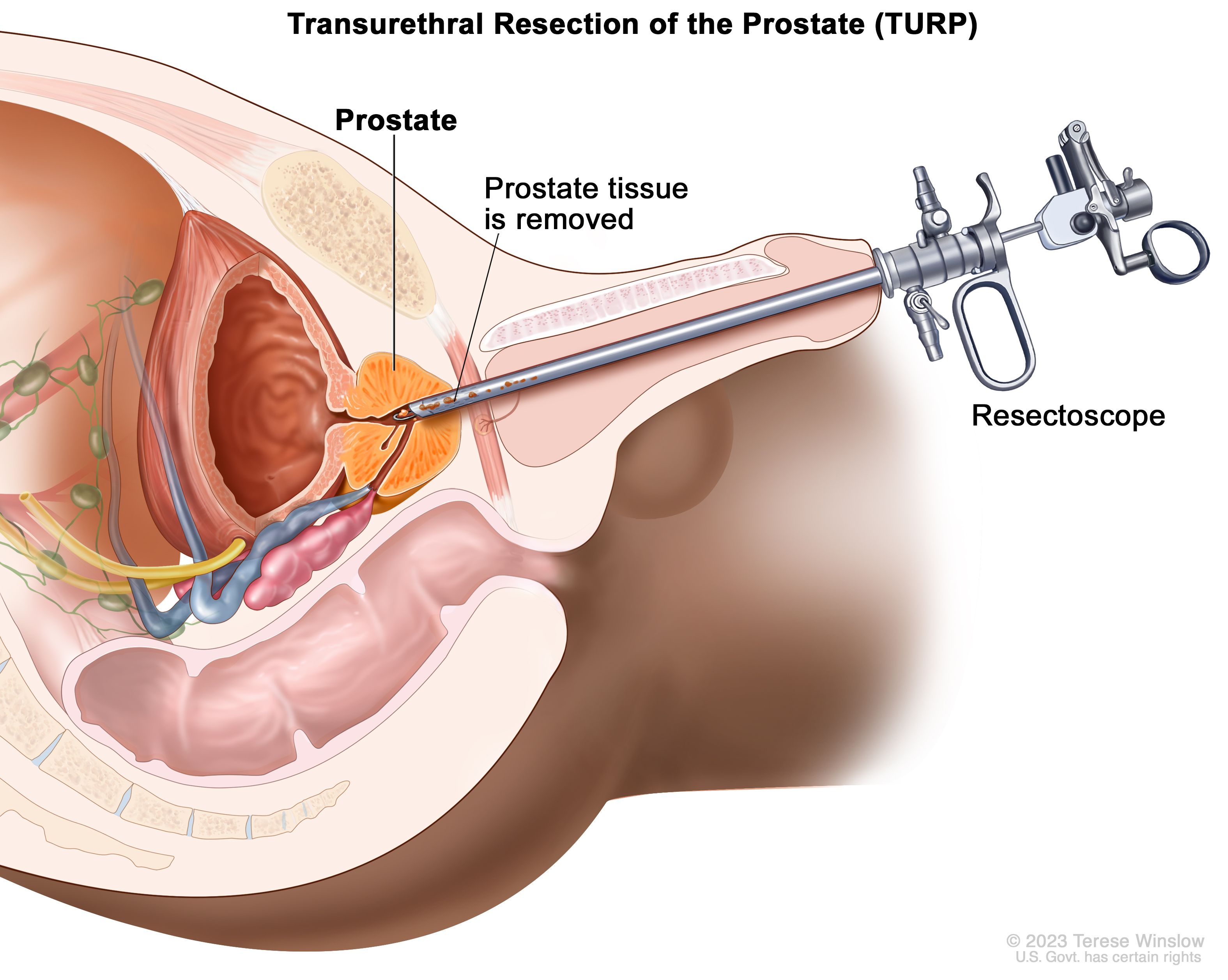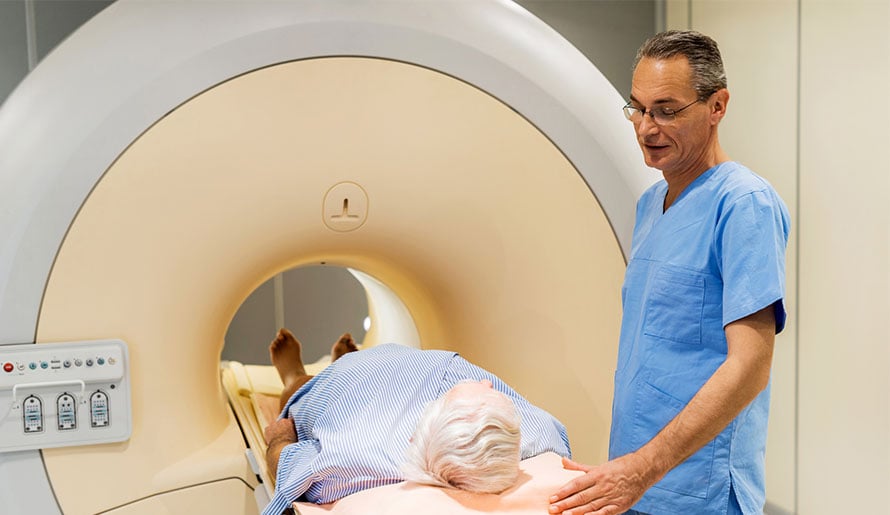The Best Guide To Best Prostate Surgeon In Mumbai
Wiki Article
Prostate Cancer Treatment: Surgical and Non-Surgical Approaches Explained
When faced with a prostate cancer cells medical diagnosis, the variety of therapy alternatives can appear frustrating. From medical treatments to non-surgical techniques, each method lugs its own set of considerations and advantages. The decision-making process includes weighing elements such as efficiency, potential negative effects, and long-lasting results. Recognizing the nuances of surgical strategies, like robotic-assisted surgical treatment, and non-surgical treatments such as radiation treatment and hormonal agent therapy, is crucial for people and their households. This detailed introduction aims to shed light on the intricacies of prostate cancer therapy, using insights right into the ins and outs of each method to empower individuals in making notified selections concerning their health.Surgical Treatment Options
When thinking about medical therapy options for prostate cancer cells, people and medical care suppliers frequently weigh the advantages and threats linked with different treatments,. One common surgical method is extreme prostatectomy, which includes the elimination of the entire prostate gland. This treatment is commonly advised for individuals with local prostate cancer and offers the potential for a cure. Extreme prostatectomy can lead to side impacts such as urinary incontinence and erectile disorder.
An additional medical choice is robotic-assisted laparoscopic prostatectomy, a minimally invasive treatment that utilizes a robotic system to help the cosmetic surgeon in removing the prostate. This technique can result in much less blood loss, much shorter health center keeps, and much faster healing times compared to typical open surgical procedure. However, it likewise lugs the danger of problems such as infection and injury to bordering organs.
Eventually, the choice of medical treatment for prostate cancer cells depends on numerous elements consisting of the stage of the cancer cells, the patient's total health, and their choices relating to prospective adverse effects and recuperation times. Consulting with a multidisciplinary group consisting of urologists, oncologists, and radiation oncologists can help clients make educated choices about the most appropriate medical technique for their individual situation.

Non-Surgical Treatment Options
Thinking about choices to medical interventions, non-surgical treatment alternatives for prostate cancer cells deal patients extra methods for managing the disease while lessening prospective medical dangers. One non-surgical technique is Active Monitoring, where individuals with low-risk prostate cancer cells are kept track of carefully via regular examinations, blood tests, and biopsies, without going through prompt therapy. This strategy aims to avoid unnecessary treatment and its affiliated adverse effects, such as incontinence and erectile dysfunction.One more non-surgical choice is Radiation Treatment, which makes use of high-energy rays to kill cancer cells (Best prostate cancer doctor in Mumbai). This therapy can be provided externally making use of a maker (External Light beam Radiation) or inside via little radioactive pellets positioned near the lump (Brachytherapy) Radiation therapy can be made use of as a key treatment or in combination with other therapies, such as hormone treatment
In Addition, Hormone Therapy is a non-surgical strategy that aims to minimize the levels of male hormones (androgens) in the body, as these hormones can sustain the development of prostate cancer cells. By blocking or decreasing androgen levels, hormone treatment can decrease cancer development and eliminate symptoms in innovative situations.
Robotic-Assisted Surgical Procedure for Prostate Cancer

One of the key advantages of robotic-assisted surgical procedure for prostate cancer cells is its capacity to decrease the risk of issues and side effects commonly connected with open surgical treatment, such as blood loss, pain, infection, and extended recuperation times. Clients going through robotic-assisted procedures usually experience much shorter medical facility stays, much less postoperative pain, and quicker return to normal tasks. In addition, the minimally intrusive nature of robot surgery usually leads to smaller sized lacerations, resulting in enhanced cosmetic end results and decreased scarring for patients. In general, robotic-assisted surgical treatment represents a cutting-edge technique to prostate cancer treatment that combines technical innovations with medical proficiency to optimize person end results.
Radiation Treatment for Prostate Cancer
Utilizing advanced radiation modern technology, radiation treatment plays an important duty in the extensive therapy of prostate cancer cells. Radiation treatment utilizes high-energy radiation to destroy cancer cells and reduce lumps. It is a typical treatment choice for prostate cancer cells, either as a main treatment or in combination with surgical procedure, hormone treatment, or chemotherapy.There are two main sorts of radiation therapy used for prostate cancer: exterior light beam radiation treatment (EBRT) and brachytherapy. In EBRT, an equipment provides radiation from outside the body to the prostate. This therapy is commonly provided over several weeks, with daily sessions lasting just a couple of minutes (Best prostate cancer hospital in India). Brachytherapy includes placing contaminated seeds or resources directly into the prostate near the malignant cells. These seeds emit radiation that kills the cancer cells gradually.
Radiation therapy for prostate cancer is highly reliable, with high remedy prices, specifically for localized cancer cells. It is likewise an important choice for clients who may not be suitable candidates for surgery. Like any type of therapy, radiation therapy might have Best prostate cancer doctor in Mumbai adverse effects, such as urinary issues, tiredness, and skin irritation, however these are often short-lived and manageable.
Hormone Treatment for Prostate Cancer
Hormone treatment is a generally utilized treatment strategy for prostate cancer management. Prostate cancer cells is often fueled by the man hormonal agent testosterone. Hormone treatment, additionally referred to as androgen deprivation therapy, intends to decrease testosterone degrees in the body or block the hormone's results on the prostate cancer cells, therefore slowing down the disease's development. This treatment is particularly reliable in innovative stages of prostate cancer cells, where surgical procedure or radiation treatment may not suffice.There are various sorts of hormone treatment for prostate cancer cells, including drugs that lower testosterone degrees (such as luteinizing hormone-releasing hormone agonists and antagonists), or medications that block testosterone from reaching cancer cells (like anti-androgens) Hormone treatment can be used alone or in mix with other therapies like radiation therapy, depending upon the phase and aggression of the cancer.
While hormonal agent therapy can properly control prostate cancer development, it may feature side impacts such as warm flashes, loss of libido, erectile disorder, and osteoporosis - Best prostate cancer hospital in India. Normal tracking and conversations with healthcare suppliers are crucial to handle these adverse effects and make sure the treatment's efficiency
Verdict
Finally, the therapy alternatives for prostate cancer consist of surgical and non-surgical techniques such as robotic-assisted surgical procedure, radiation treatment, and hormonal agent treatment. Each strategy has its own benefits and dangers, and the option of therapy relies on various elements such as the phase of cancer and general health and wellness of the person. It is necessary for people to review these alternatives with their medical care company to figure out the most ideal training course of activity for their specific scenario.
Using advanced radiation technology, radiation treatment plays an important role in the comprehensive therapy of prostate cancer cells. It is a typical treatment alternative for prostate cancer, either as a key treatment or in mix with surgery, hormone treatment, or chemotherapy.
Radiation therapy for prostate cancer cells is very reliable, with high remedy prices, particularly for local cancer.Hormone treatment is a generally made use of treatment approach for prostate cancer management.In verdict, the treatment choices for prostate cancer consist of non-surgical and surgical methods such as robotic-assisted surgical treatment, radiation therapy, and hormonal agent treatment.
Report this wiki page